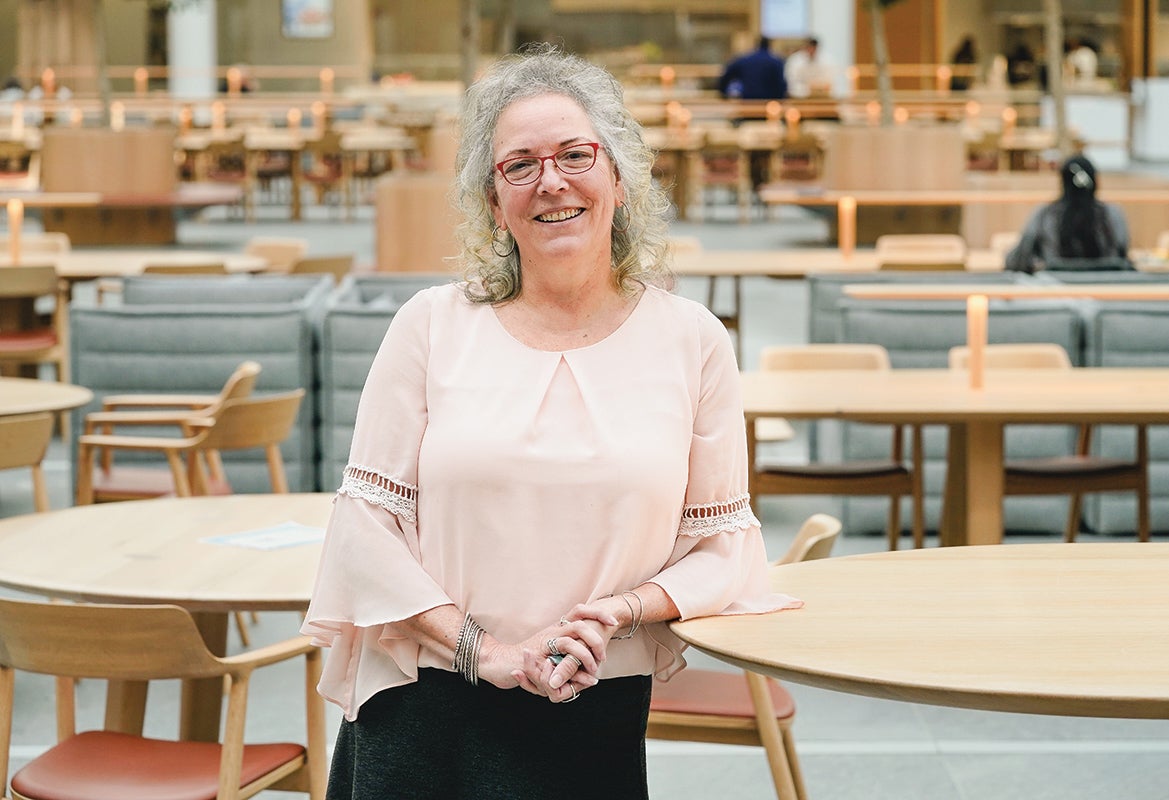lens
Intentional Support
The nursing school's Susan Painter aims to help grief-stricken families and providers after an accidental overdose death
 Photo by Gus ChanSusan Painter
Photo by Gus ChanSusan PainterSince the nation's opioid crisis began in the 1990s, unintentional overdose deaths have claimed the lives of tens of thousands of Americans annually.
And through the years, Susan Painter, DNP, has seen the heartbreak—and insufficient support for families and healthcare providers grieving these deaths.
The advanced practice registered nurse and an assistant professor at Case Western Reserve University's Frances Payne Bolton School of Nursing spent decades working in the fields of trauma, family violence and substance use.
But once Ohio had one of the nation's highest rates of opioid-related deaths, Painter felt compelled to act.
She's now working on several fronts to help fortify families as well as current and future providers against the pain and stigma of losing loved ones and patients to overdoses.
She is developing curriculum for undergraduates and graduate students at CWRU, giving presentations to local, state and national organizations about substance-use disorders. She is also working with colleagues at CWRU's Ohio Substance Use Disorders Center of Excellence to develop educational resources and training content for providers throughout the state to address well-being and recovery as the overdose and addiction crisis continues to take lives.
Painter recently spoke with Think about caring for people amid their anguish.
Is grieving an accidental opioid overdose death different for families and providers than other deaths?
I would say it is a lot different. There are more complexities to death by overdose. Family members may be taken by surprise and experience thoughts of wishing they had done more. Substance use in our society carries a heavy dose of stigma, and families may be treated in ways that send the message that they somehow do not have a right to grieve. Providers may not have been aware their patient had relapsed, and wonder if they missed something or if they could have prevented the death.
You have co-written resources for clinicians and therapists with CWRU colleagues to better help families and providers after an unintended lethal overdose. What are key recommendations?
Providers may not want to share how vulnerable they feel after a patient's death for concern that colleagues may feel they are weak or no longer dependable for the next emergency crashing through the door. The most significant way to engage with a colleague after an overdose death is through connection. Support and validation from peers and colleagues is crucial. The employer or agency also needs standardized training for what to do after a lethal overdose so staff understand administrative protocols, which include support of colleagues and affected families. Relieving a colleague of the responsibility of a full patient load in the hours or days following a patient's death would allow the provider to complete the [administrative] tasks that need to be addressed. Having a plan of 'when this happens and knowing what to do' ... will certainly prepare a provider for what lies ahead.
How else do providers need to be supported?
For the most part, healthcare is regarded as one-way caring and as providers, we're branded that way. The stressors we face come from the very work we do. Caring for self may be foreign, while caring for others is imprinted. This concept became apparent after COVID-19 as healthcare lost a lot of providers because the toll was too high.
"How do you take care of providers who just lost someone and still have 10 or 15 patients to see? This is the legacy I would like to leave for my community—provider self-care."
— Susan Painter, assistant professor of nursing





